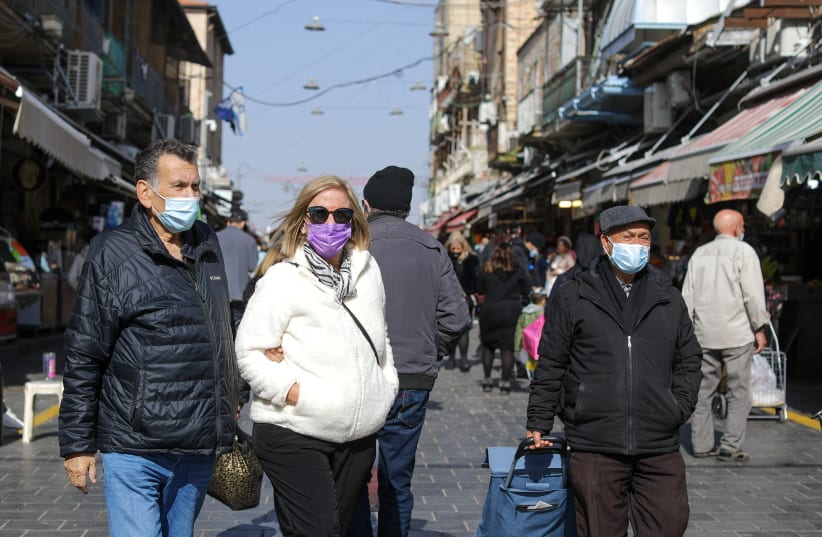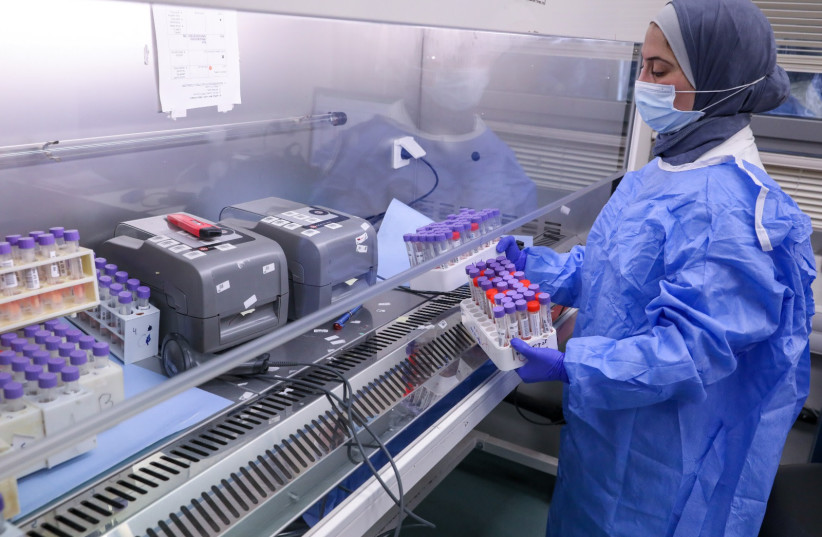Israel should cancel its Green Pass system, Finance Minister Avigdor Liberman said Tuesday as the country registered a record 65,259 new coronavirus cases.
He made his remarks a few hours after he, together with Prime Minister Naftali Bennett and Health Minister Nitzan Horowitz, said more than 25 million at-home antigen tests would be distributed free to Israelis in the upcoming days.
“There is no medical and epidemiological logic in the Green Pass as many experts concur,” Liberman wrote on Twitter. “What there is, is a direct damage to the economy, daily functioning and in addition, a significant contribution to panic among the public. I am working with all parties to eliminate the Green Pass and preserve a normal routine for all of us.”
Under the Green Pass outline, only people who are vaccinated, recovered or tested in the previous day – or 72 hours in specific cases – can access certain activities and venues, and in some instances, their workplace.
With the rise of the Omicron variant, the number of breakthrough infections and reinfections (individuals catching the virus despite being vaccinated or recovered) has skyrocketed.
Health officials and experts, including Health Ministry Director-General Nachman Ash, have said inoculation and recovery still offer some degree of protection, and therefore the Green Pass system should be kept in place. However, they also acknowledged that at some point the question might need to be reexamined.
If the Green Pass were to be abolished, it would represent one of the most dramatic shifts in the way the country has been managing the pandemic.
Earlier in the day, Ash said Israel had not yet seen the peak of the Omicron wave.
“I believe that the peak will occur in another week or so,” he told FM103 Radio. “However, we are also seeing that the number of hospitalizations is still rising, but the increase is slowing down.”
As of Tuesday, the Health Ministry had not released complete updated data on the pandemic trends in Israel since Sunday night due to technical problems.
There were 65,259 new cases on Monday and 62,210 on Sunday, it said. The previous highest number, registered last Wednesday, was 48,095.
There were 498 patients in serious condition, including 100 on ventilators and 13, the most critical cases, on extracorporeal membrane oxygenation machines (ECMO). Last Tuesday, there were 219 patients in serious condition.
Ash also addressed the decision of shortening the quarantine for infected individuals, and unvaccinated individuals who have been exposed to an infected person, from seven to five days with a negative antigen test, which will come into effect on Wednesday.
“The large number of verified cases and of isolations is very burdensome on the economy,” he said. “We have taken several precautions that, as far as they are implemented, will reduce risks, like the test we require to leave quarantine, while up until now there has been no need for a test. On the seventh day, people could just go out. In addition, according to the guidelines, if you have symptoms, you do not go out.”
These rules will help reduce the risk that individuals who are still contagious after the fifth day, around 15%, will leave quarantine, Ash said.
In making the decision, the authorities have tried to find the balance between medical needs and other considerations, he added.
At-home antigen tests have become a cornerstone of testing and quarantine rules implemented during the Omicron wave to allow people to keep themselves monitored.
The government decided to distribute between 25 million and 30 million kits for free to help make the tests more accessible.
According to the outline, every child in the education system up to the age of 18 will receive six tests. Another 2.5 million tests will be distributed in geriatric facilities and nursing homes, while each family on welfare support (about 450,000 families) will receive 20 tests. More kits will be used to test the elderly in other frameworks and to test 350,000 university students.
“We are committed to supplying all of the tools to safeguard the health of every person in Israel, alongside maintaining the economy, education and life alongside the coronavirus,” Horowitz said. “In parallel with the testing stations throughout the country, just as we promised, we are embarking on a major effort to distribute millions of free tests to the public. I call on the public: Use the tests. It is simple, accessible and free.”

